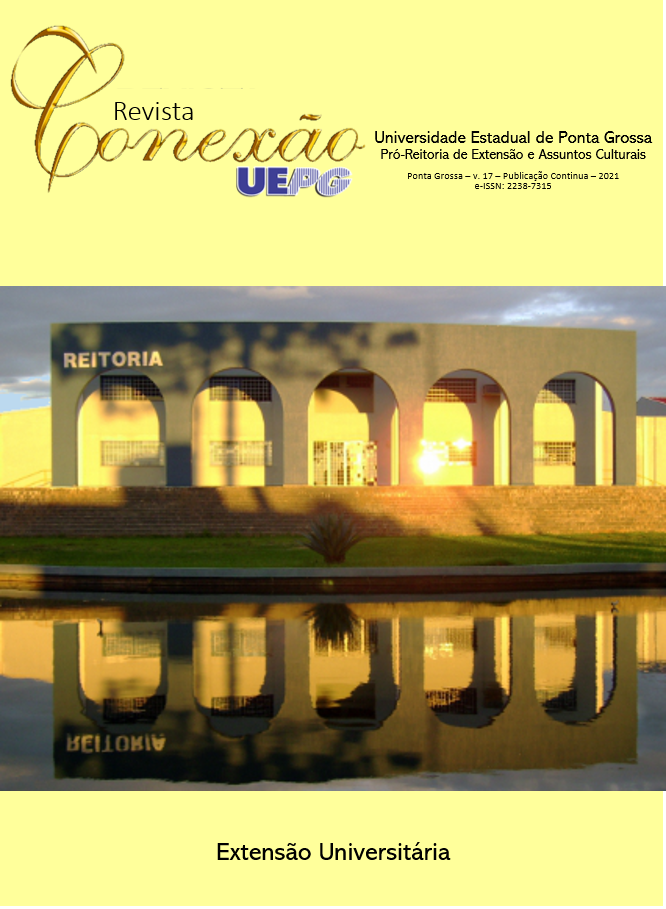SEMINÁRIO VIRTUAL: UMA FORMA DE DIVULGAR CONHECIMENTO CIENTÍFICO PARA O USO ECONÔMICO E SUSTENTÁVEL DA ARAUCÁRIA E ERVA-MATE NA PANDEMIA DE COVID-19
DOI :
https://doi.org/10.5212/Rev.Conexao.v.17.17685.53Résumé
O objetivo deste artigo é analisar e divulgar os resultados obtidos com a realização de um seminário virtual (webinar) sobre duas importantes espécies nativas: araucária (Araucaria angustifolia) e erva-mate (Ilex paraguariensis). O presente artigo, de caráter descritivo e qualitativo, aborda o evento “Webinário da Araucária e da Erva-mate”, que foi organizado por alunos e servidores do Instituto Federal de Santa Catarina (IFSC) – Campi São Carlos e Canoinhas. O evento alcançou centenas de participantes de várias regiões do Brasil e também do exterior, que fizeram a inscrição e avaliação por meio de formulários eletrônicos. Como resultados, destacam-se: o alcance da comunidade externa, o entrosamento e contato positivo com a comunidade de forma virtual, e a atuação protagonista dos discentes. A avaliação do evento foi positiva, tanto para os participantes inscritos quanto para os alunos extensionistas, os quais relataram impacto positivo em sua formação.
Téléchargements
Téléchargements
Publié-e
Numéro
Rubrique
Licence
a) Os autores mantêm os direitos autorais e concedem à revista o direito de primeira publicação, com o trabalho simultaneamente licenciado sob a Creative Commons Attribution License que permite o compartilhamento do trabalho com reconhecimento da sua autoria e publicação inicial nesta revista.
b) Ao submeter um artigo à Revista Conexão UEPG e tê-lo aprovado os autores concordam em ceder, sem remuneração, os seguintes direitos à Revista: os direitos de primeira publicação e a permissão para que a Revista redistribua esse artigo e seus metadados aos serviços de indexação e referência que seus editores julguem apropriados.
c) Os leitores são livres para transferir, imprimir e utilizar os artigos publicados na Revista, desde que haja sempre menção explícita ao(s) autor (es) e à Revista Conexão UEPG e que não haja qualquer alteração no trabalho original. Qualquer outro uso dos textos precisa ser aprovado pelo(s) autor (es) e pela Revista.

Este obra está licenciado com uma Licença Creative Commons Atribuição 4.0 Internacional.





